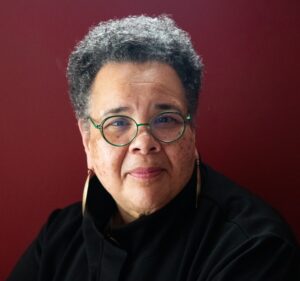
Who Believes in You?
My coach and I were discussing a difficult decision I needed to make for my newly acquired job. I confided the details of the situation to her, and she listened patiently. We discussed the dilemma and figured out some contingency strategies. As our conversation was winding down, she said the simple phrase, “Lynne, you got this.” I wanted to cry. I did not think I had it. I was inexperienced and struggling. But, when my coach told me I could navigate the difficult situation, I believed her, at least a little bit. Her belief in me brought me unexpected comfort and gladness. I needed someone to believe in me and say it out loud.
When our students enter our classrooms, they bring who they are, along with their anxieties, uncertainties, fears, and so often, lack of confidence. The question is, while you are doing the difficult and increasingly complex job of teaching--who believes in you?
My mother was my consummate cheerleader. My mother rooted for me all my life. When I attempted small things, she prayed, cheered, and supported. When I attempted enormous things like a doctorate degree or a new job, she prayed, cheered, and supported. In the years when I routinely traveled to do consultations or public speeches or to preach, my mother would ask me the time of my work so she could pray at those exact moments. I miss my mother’s undimmable support. She believed in me and her belief gave me confidence.
We need people in our lives who understand that teaching, even when wildly rewarding, is challenging and this challenge cannot be accomplished alone. We need people who cheer us on. People who instill courage. People who help us to muster up our brave.
Who believes in you and your work and supports you in your efforts? Find these people. Thank these people. If you do not have these people, get these people. Or, be that person for someone else.
The Wabash Center requires letters of recommendation for workshop applications. In every batch of applications, we inevitably receive one or two letters of recommendation written by a dean or department chair for an applicant that is a meager one or two sentences of perfunctory prose. The letter is hurried, too brief for the needs and gravity of the application. Every time I read a flimsy letter of recommendation written by a too busy person, I feel sorry for the applying faculty colleague. If you are not going to write a thoughtful letter, perhaps be truthful and tell your colleagues that you cannot recommend them. Or, even better, take the time to write a decent letter of recommendation. These letters are moments to cheer on a colleague who is trying to better themselves and their teaching.
Entertainers and athletes have the luxury of being cheered on by a crowd. Yes, they must live through, on occasion - jeers, sneers, boos—every now and then. However, much of their careers are spent being applauded. What if we gave our faculty a standing ovation or the equivalent? What would a round of applause for teachers be like in our schools?
So many institutions single out one colleague and provide a “Teacher of the Year” award. Consider that, rather than fueling community, this individualizing gesture feeds contempt for one another. Teacher awards do not improve teaching. They do not communicate to faculties that they are appreciated. They only pit colleagues one against the other. Design new ways to celebrate all who are struggling to survive, all who show up to each class, all who meet their students with lesson plans, expectations, and dreams. Expressing to one another that we believe in what we are doing and that we support teachers and teaching will require, for many schools, a culture shift.
Last week a young colleague told me that she was scheduled to give an important presentation at her school and, understandably, she was nervous. I penciled a note on my calendar so I could remember the date. Today I noticed my note and called my colleague. She reported that her presentation went quite well. I told her that I was proud of her and her accomplishment. I told her to continue her hard work. I told her I believed in her. I hope I instilled a bit of confidence. I hope she believed me when I said that I believed in her.
I am going to tell colleagues in tangible ways that I believe in them. I am going to make a practice of penciling into my calendar, then following up with a phone call or email so colleagues know someone is rooting for them.
Imagine the difference that could be made if we root for one another!
Leave a Reply